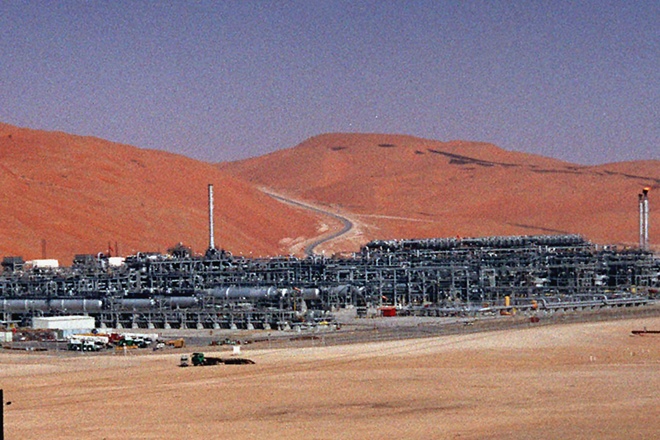-
Tips for becoming a good boxer - November 6, 2020
-
7 expert tips for making your hens night a memorable one - November 6, 2020
-
5 reasons to host your Christmas party on a cruise boat - November 6, 2020
-
What to do when you’re charged with a crime - November 6, 2020
-
Should you get one or multiple dogs? Here’s all you need to know - November 3, 2020
-
A Guide: How to Build Your Very Own Magic Mirror - February 14, 2019
-
Our Top Inspirational Baseball Stars - November 24, 2018
-
Five Tech Tools That Will Help You Turn Your Blog into a Business - November 24, 2018
-
How to Indulge on Vacation without Expanding Your Waist - November 9, 2018
-
5 Strategies for Businesses to Appeal to Today’s Increasingly Mobile-Crazed Customers - November 9, 2018
Saudi Arabia will need to go beyond Oil by 2030
While economists had pointed to the unsustainability of Saudi Arabia’s fiscal policy and economic structure much before the oil price plunge in 2014, the halving of income from energy sales has exacerbated the need for reform.
Advertisement
For example, the government’s non-oil revenues are to reach 600 billion riyals by 2020 and 1 trillion riyals by 2030, from 163.5 billion riyals in 2015. But the plan gave few details on how this would be implemented, something that has bedevilled previous reforms.
Prince Mohammed on Monday presented a broad overview of what has been billed as the country’s most extensive economic shake-up in decades. As budget deficits have spiraled in the a year ago as oil prices have fallen to below $50 a barrel this delicate socio-economic compact had come under intense pressure.
“We are now about to establish a holding company for the military industries 100 per cent owned by the government that will be listed later in the Saudi market”, Prince Mohammed said.
Saudi Arabia has approved a grand strategy to restructure the kingdom’s oil-dependent economy, involving diversification, privatisation of massive state assets including the energy giant Aramco, tax increases and spending and subsidy cuts. “We expect that the evaluation of Aramco will be more than two trillion dollars”. In addition to that there are other assets that will be added to the fund, and part of it is already added.
When asked if women would be allowed to drive cars until Vision 2030, Prince Mohammad said Saudi society, not the government, would decide whether to lift the ban on female drivers.
The prince discussed plans to set up a $2 trillion sovereign wealth fund that would be managed by an outside board of directors. The world’s biggest crude exporter said it couldn’t sign up to a deal without the participation of Iran, which has pledged to boost its own oil output to pre-sanctions levels before considering a cap.
He added that subsidiaries of the company would also be sold by IPO. Today they will be transparent.
By “selling even 1% of Aramco, it will be the largest IPO in the world”, he said.
The 30-year-old second-in-line to the throne also serves as the country’s defence minister and chairs a committee to oversee economic policymaking.
King Salman bin Abdul Aziz al Saud announced in a brief television speech that the Government adopted the plan.
Bin Salman had suggested earlier that what Saudi Arabia was planning was similar to the Thatcher-era privatisation of state industries in Britain in the 1980s.
Saudi Arabia would prepare a new education curriculum, Prince Mohammed said.
Advertisement
It focuses on the Kingdom’s strengths, its religion and Arab heritage, ability and location, he said. Last year, the country ran a deficit of $98 billion, about 15 percent of its gross domestic product. The new plan, he said, would turn the country into an “investment-driven economy”.





























